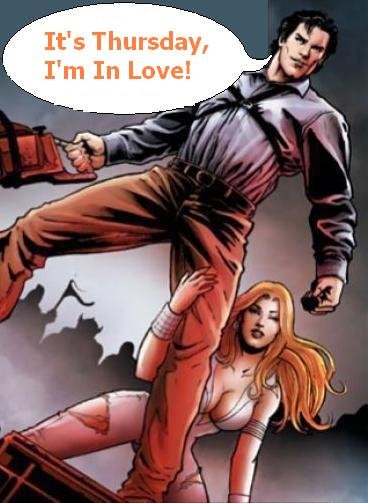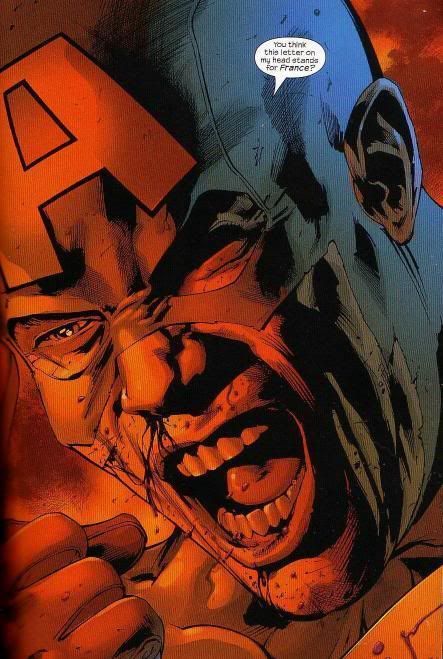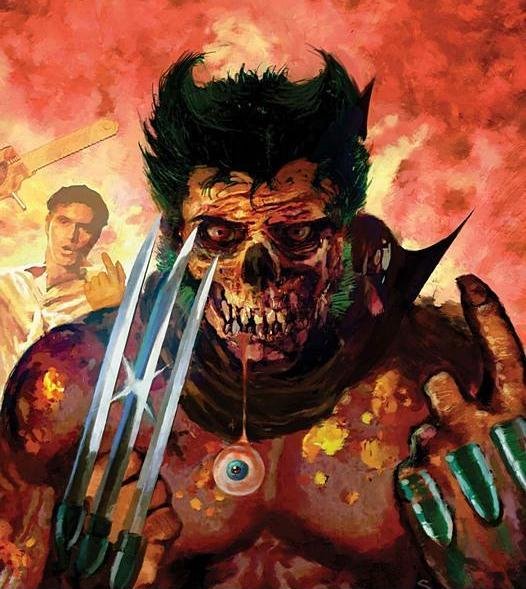Wizard Universe interviews five comic book creators who may be making the move to Hollywood!
FROM COMICS TO HOLLYWOOD
A quintet of comics’ biggest creators talk about making the move to Hollywood
By Ben Morse | Posted December 18, 2007 5:00 PM |
The writer of Marvel’s surprise hit Marvel Zombies as well as enduring cult favorite The Walking Dead from Image, Robert Kirkman signed the film rights to his self-created teen superhero comic Invincible to Paramount in 2005 and came on board to write the movie’s screenplay a year later. “Transformers” producer Lorenzo di Bonaventura has also signed on.
“I think I’m pretty good at writing comics, but writing screenplays is new to me, so there’s definitely a learning curve. I didn’t read any screenplays growing up so it’s a completely alien art form. When I get to page 22, I’m usually done. There’s definitely something difficult psychologically about not being able to believe you just wrote 60 pages and then realizing you’re only halfway through.”
Best known for his collaborations with writer Mark Millar on Ultimates and their upcoming Fantastic Four run, artist Bryan Hitch has worked quietly behind the scenes in both Hollywood and for his native England’s BBC: He’s a designer for the pending “Star Trek” movie directed by J.J. Abrams and the “Dr. Who” television series, respectively.
“[Producer] Damon Lindelof and I started talking about ‘Star Trek’ way back. I was involved in the early discussions and was going to get to do the fun stuff like the Enterprise, then Paramount pulled the plug temporarily. When it came back, there had been a script leak so nobody ‘off the lot’ was allowed to work on sensitive material.
“Mark Millar and I are working with Joe Ahearne, a highly respected writer/director, about developing a new BBC series. Joe would be the lead writer and director with Mark as a writer and me as lead designer. There’s been discussion of me directing as well. Stylistically, working on BBC shows is similar to American TV because stuff like ‘Dr. Who’ is an attempt to replicate what [America] is doing with genre family entertainment. The difference between comics and television or film is that while with comics Mark and I are lucky to be almost completely autonomous, the film stuff is about servicing somebody else’s vision. I can’t see why I can’t do both, do a six-issue comic and then direct some television or make a film. It’s all telling stories, and that’s what I want to do.”
Before writing comics like Green Lantern, Geoff Johns earned his college degree in Media Arts with a minor in Film Theory from Michigan State University and spent four years working under legendary director and producer Richard Donner. Johns served as a writer on the “Blade” TV series and currently works alongside “Robot Chicken” creators Seth Green and Matt Seinreich as a producer, writer and director on their upcoming stop animation feature film “Naughty or Nice.” He also has a film based on DC’s Metal Men in development.
A six-year veteran of Amazing Spider-Man and the current writer of Thor, Straczynski made a name for himself in television, most notably creating Emmy-award winning sci-fi series “Babylon 5,” before comic fans had any idea what the initials “JMS” stood for. At present, Straczynski has several film projects ongoing, including: a Silver Surfer feature spinning out of “Fantastic Four 2: Rise of the Silver Surfer,” which he will write the screenplay for; “The Changeling,” a thriller directed by Clint Eastwood and starring Angelina Jolie; and “World War Z,” based on Max Brooks’ bestselling novel. He’s also developing a script for Paul Greengrass based on a story the director wrote called “They Marched Into Sunlight.”
One of the most well-respected comic book writers of the last 20 years, Grant Morrison’s credits range from seminal tales like Arkham Asylum to current works like All Star Superman. In 2006, New Line optioned We3, Morrison’s quirky miniseries about robotically enhanced killer animals with the creator attached as screenwriter. Paramount recently hired Morrison to adapt the “Area 51” video game into a film.
“Hollywood is worse than comics—they don’t want you to talk about anything. Comics are all about explanation and exposition. Movies are a lot more direct. They have to play to the audience in middle America as much as in China. I enjoy doing something I can focus on for 120 pages and craft into something great. There are all these rules and everything is very specific. Comics are much more seat-of-the-pants improvisation, which is fun as well. Movies are hardcore.”



No comments:
Post a Comment